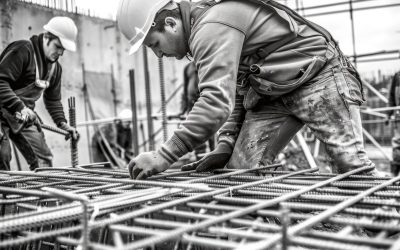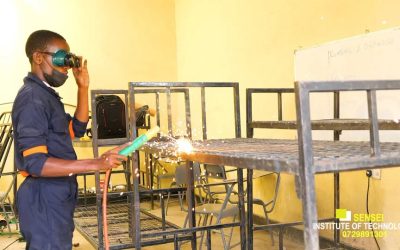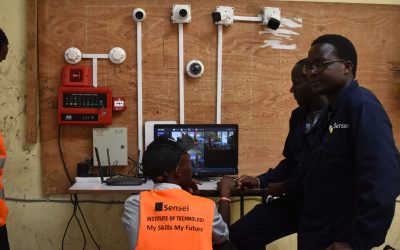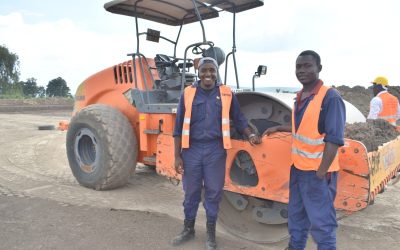Massage Therapy Training in Kenya: Skills and Job Opportunities
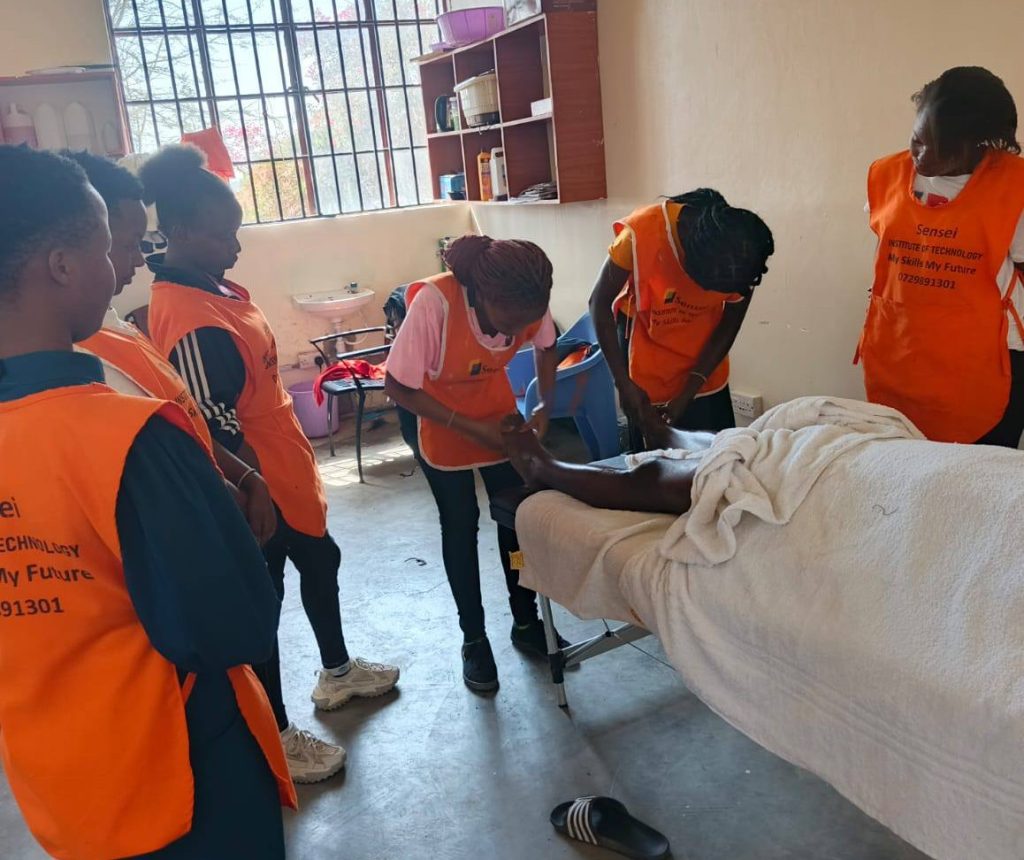
Massage therapy has rapidly evolved from a luxury treat into an essential component of health and wellness. In Kenya, more people are embracing massage for stress relief, pain management, and overall well-being. In fact, the country’s fitness and wellness industry was valued at around Ksh 5 billion in 2019, reflecting a surge in demand for services like massage therapy.
Modern lifestyles and health awareness have made massage “not just a luxury but a necessity to healthy living”. This trend has led to a growing need for professionally trained massage therapists. If you are a prospective student considering a career in massage therapy, this guide will provide you with detailed insights into training options, skills you’ll learn, certification, and career opportunities in Kenya.
Why Pursue Massage Therapy Training?
Massage therapy is becoming one of the most marketable career choices in Kenya’s wellness sector. Here are some key reasons why training as a massage therapist can be a rewarding path:
- High Demand for Services
Kenyans are increasingly seeking massage services for relaxation, therapeutic relief, and fitness recovery. The massage business is highly profitable due to high demand and relatively low competition in many areas. This means skilled therapists are sought after in the job market.
- Growing Wellness Industry
The rise of wellness tourism and health-conscious lifestyles has expanded opportunities. Industry reports show rapid growth in wellness spending (e.g. Kenya’s wellness industry growing by 9% year-over-year in 2019), so spas, hotels, and gyms are investing more in massage and holistic therapies to meet customer expectations.
- Short, Affordable Training
Unlike lengthy university programs, massage training courses are short-term (often just a few months), making it quicker and cost-effective to get skilled. Many programs only require a Kenyan ID to enroll (no advanced academic prerequisites), lowering barriers to entry.
- Diverse Work Environments
As a certified massage therapist, you can work in various settings – from day spas and upscale hotels to wellness retreats, salons, or even private practice. Therapists in Kenya find jobs in health spas, clinics, fitness centers, sports clubs, cruise ships, and airport lounges among others. This flexibility allows you to choose an environment that suits your interests (e.g. sports massage for athletes, or aromatherapy in a luxury spa).
- Entrepreneurial Opportunities
Massage therapy skills enable you to start your own business or offer freelance services. Setting up a small massage studio or offering mobile massage services is feasible with modest capital. (For instance, opening a massage clinic may require basic equipment and a county business permit.) Given the strong demand, a well-run massage venture can attract a loyal client base, with quality service leading to repeat customers.
In summary, pursuing massage training in Kenya can lead to a fulfilling career in a growing industry. Next, we explore what massage training programs entail and how to get started.
Overview of Massage Training Programs in Kenya
Massage therapy training in Kenya is typically offered as a certificate or diploma course through vocational colleges, beauty schools, and wellness institutes. Here’s what prospective students should know about these programs:
- Course Duration
Most certificate-level courses last 3 to 6 months on average. Some intensive programs may be as short as 2 months, while comprehensive diploma courses can run longer (4–12 months). For example, one college’s massage certificate is a 3-month program, and a holistic massage diploma may take about 4 months of training. The relatively short duration means you can acquire job-ready skills within a few months of study.
- Admission Requirements
Entry requirements are generally very accessible. Many institutions require only a form of ID and an interest in the field – the entry is “open” to most adults. This inclusivity allows school leavers, mid-career individuals, or anyone passionate about wellness to enroll. (Some specialized programs, like a Shiatsu course for the visually impaired, cater to specific groups, but most courses welcome all students.)
What You Will Learn: Skills and Techniques
Massage therapy courses in Kenya are very hands-on and practical, designed to equip you with both theoretical knowledge and real massage skills. From day one, students begin practicing techniques under instructor guidance – by the end of the first day you may have already given and received a massage in class. This experiential approach builds confidence and proficiency.
Typical curriculum components include:
- Anatomy and Physiology
Understanding the human body is foundational. You’ll study the muscular, skeletal, and circulatory systems to know how massage affects them. This knowledge ensures you perform techniques safely and effectively, and can explain the physical benefits of each massage to clients.
- Swedish Massage
Often the first technique taught, Swedish massage involves classic strokes (effleurage, petrissage, tapotement, etc.) for overall relaxation. It’s the basis of many spa massages and teaches good hand movements and client draping skills.
- Deep Tissue Massage
You will learn to work on deeper muscle layers to relieve chronic tension. Deep tissue techniques are useful for clients with muscle knots or athletes recovering from intense training.
- Hot Stone Therapy
Handling smooth heated stones to massage the body is a popular spa modality. Trainees practice placing and gliding stones to ease muscle stiffness and improve circulation.
- Reflexology
This is the art of applying pressure to specific points on the feet (or hands/ears) that correspond to body organs. Training covers foot massage techniques and reflex points to promote holistic wellness.
- Aromatherapy Massage
You’ll learn to integrate essential oils into massage. Courses cover oil properties and blending, enhancing massages for relaxation or invigorating purposes.
- Seated Chair Massage
Many programs include chair massage techniques, which are done on a special chair with the client clothed – ideal for corporate or event massage services.
- Specialty Techniques
Depending on the school, you might be exposed to additional modalities. Some holistic programs teach Indian head massage (focuses on the head, neck, and shoulders), prenatal massage (for expectant mothers), or even elements of Asian bodywork like Shiatsu, Thai, or Ayurvedic massage. Advanced courses can include unique skills such as Bamboo massage, Chinese acupressure, or use of tools like herbal compresses. These give you a broader toolkit to cater to different client needs.
Courses also emphasize professional practices – like client consultation, hygiene and sanitation, contraindications (when not to massage), and ethics. By the end of training, you should be able to confidently perform a full-body massage session and adapt techniques to various client scenarios.
Hands-on training in action: Students practice massage techniques under an instructor’s guidance, honing their skills through real experience.
The goal of massage training is to ensure that graduates are job-ready therapists who can deliver safe, effective massages. You’ll not only master techniques for relaxation, but also learn how massage can help with injury prevention, rehabilitation, and mental wellness. With a solid foundation from a reputable program, you’ll be prepared to meet the expectations of employers and clients in the wellness industry.
Career Opportunities and Outlook
One of the most exciting aspects of massage therapy is the wide range of career opportunities available after training. As a qualified massage therapist in Kenya, you can look forward to working in various roles and environments:
- Spas and Wellness Centers
This is a primary employer for therapists. You might join a day spa in a city mall, a luxury spa in a five-star Nairobi hotel, or a beach resort spa at the coast. These settings offer steady client flow, and you’ll perform relaxation massages, facials, body scrubs, and other treatments as part of a team. Wellness tourism is on the rise (hotels are increasingly focusing on spa services to attract guests), so skilled therapists are in demand at resorts and lodges.
- Health and Sports Facilities
Gyms, yoga studios, and sports clubs sometimes hire massage therapists to help members with muscle recovery or injury prevention. Sports massage can open opportunities to work with athletes – even sports teams or clinics need therapists for pre- and post-event massages. Additionally, some hospitals and chiropractic/physiotherapy clinics collaborate with massage therapists to complement patient care (for instance, providing therapeutic massage for rehabilitation or pain relief).
- Mobile and Freelance Therapy
Many therapists choose to be self-employed, offering mobile services where they travel to clients’ homes or offices. This can be lucrative, serving busy clients who prefer in-home sessions. Freelancing provides flexibility – you set your schedule and can build a personal client base. With the right marketing and networking, freelancers often tap into corporate clients (e.g. offering chair massages at workplaces or events) and expatriate communities.
- Beauty and Salon Industry
Some beauty parlors and barbershops incorporate basic massage or grooming massages (like head, neck, and shoulder rubs) as value-added services. As a trained massage therapist, you could work in a beauty therapy setting providing treatments like Indian head massage or reflexology alongside beauticians. This diversifies your employment options beyond dedicated spas.
- International Opportunities
A Kenyan massage qualification, especially if paired with an international certificate, can open doors abroad. Cruise ship spas regularly hire therapists for contracts, which is a chance to travel while working. Likewise, wellness retreats and hotels overseas value therapists with diverse technique training (e.g. those who can do Swedish, hot stone, aromatherapy, etc.). Some Kenyan graduates find opportunities in the Middle East, Europe, or on luxury safari camps in other African countries. Being globally certified enhances your portability as a therapist.
Graduates often find that they can mix and match these opportunities throughout their career. For example, you might start at a local spa to gain experience, then decide to freelance on weekends, and eventually open your own therapy studio. The earning potential grows with experience and specialization. In Kenya, a well-run massage practice can generate a steady income – industry insiders note that even a small massage business can be profitable if located strategically (e.g. near high-traffic areas like hospitals or hotels to attract clients). Consistently delivering quality service brings repeat customers and referrals, which is the key to success in this field.
Career Spotlight
According to Sensei Institute of Technology, “Graduates can pursue careers in spas, wellness centers, or as freelance massage therapists.” Another college highlights that qualified therapists can work in settings ranging from health clinics and sports centres to cruise ships and even airport lounges. This shows how versatile your career path can be after completing massage training. You’ll also join a community oriented around well-being – a fulfilling prospect if you’re passionate about helping others de-stress and heal.
Conclusion
Embarking on massage training in Kenya is an exciting step toward a career in the thriving wellness industry. With comprehensive courses available across the country, you can gain the skills to provide healing touch and relaxation to clients from all walks of life. The training is intensive but short-term, focusing on practical expertise in techniques like Swedish, deep tissue, hot stone, aromatherapy, and more. By obtaining a recognized certification – whether local or international – you’ll position yourself as a credible professional in a field with growing demand.
As you consider this journey, remember that success as a massage therapist also comes from personal qualities developed during training: empathy, good communication, and a commitment to continual learning. Kenya’s wellness landscape is expanding, and as a trained massage therapist, you’ll be at the forefront of this positive trend, promoting healthier, stress-free lifestyles one client at a time. Whether you dream of working in a serene spa, assisting patients in a clinic, or running your own mobile massage business, the possibilities are abundant once you have the right training.
If you’re a prospective student with a passion for wellness and helping others, massage therapy training could be the perfect avenue for you. It offers not just a job, but a deeply rewarding vocation. With the knowledge and insights from this guide, you can confidently take the next steps toward enrolling in a program and starting your journey in the massage therapy profession. Karibu to the world of therapeutic touch and holistic well-being!



